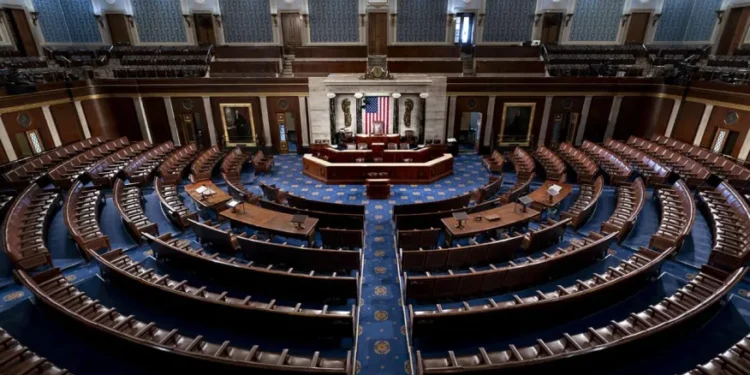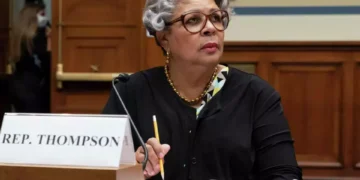June 17, 2025 Story by: Editor
After the deadly shooting that took the lives of former House Speaker Melissa Hortman and her husband, and left State Senator John Hoffman and his wife critically injured, House Democrats are sounding the alarm: member security can’t wait.
On June 16, House Minority Leader Hakeem Jeffries (D‑NY) and Rep. Joe Morelle (D‑NY) formally wrote to Speaker Mike Johnson (R‑LA), urging him to substantially increase funding for congressional offices through the Members’ Representational Allowance (MRA) and to direct the House Sergeant‑at‑Arms to immediately enhance protective measures nationwide.
A Deadly Spark Ignites Reform
The Minnesota shooting—now under federal and state investigation—was carried out by 57-year-old Vance Boelter, who investigators say posed as a police officer and targeted Democratic lawmakers’ homes in the early hours of Saturday, June 14. After killing Hortman and her husband, and wounding Senator Hoffman and his wife, Boelter fled, prompting Minnesota’s largest manhunt ever, concluding with his arrest 43 hours later.
Authorities recovered from his vehicle a manifesto and a hit list naming approximately 45 to 70 individuals, including Democratic lawmakers and abortion-rights advocates—many from states far beyond Minnesota.
Jeffries and Morelle: A Stand for Nationwide Protection
In their letter, Jeffries and Morelle stressed that:
“Member safety must be an area of common ground.” They called for the House Sergeant‑at‑Arms to actively review security needs in every congressional district and to substantially augment MRA funding—existing resources traditionally reserved primarily for personal staff, office supplies, and constituent services.
They pointed to evidence that Boelter’s notebook included names of legislators from Ohio and Texas, signaling that the threat wasn’t confined to Minnesota.
Broader Context: Persistent Threats to Democracy
This plea arrives amidst a growing history of violence targeting lawmakers—from the 2017 congressional baseball shooting to the attempted assassination of Rep. Gabrielle Giffords.
Currently, only members with formal security concerns or within House leadership typically receive protective details. The recent events have stirred bipartisan concern and pressed Congress to reevaluate if rank-and-file members nationwide deserve ongoing security authorization.
Lawmakers have been on edge since the attack amid revelations that other Democratic lawmakers including Reps. Ilhan Omar (D-Minn.), Hillary Scholten (D-Mich.) and Greg Landsman (D-Ohio) were named on lists connected to the suspect in the murders of former Minnesota House Speaker Melissa Hortman and her husband.
Senate Responds, House Awaits Speaker’s Move
On the Senate side, Senate Majority and Minority Leaders have already acted: Sen. Chuck Schumer secured enhanced protection for Sen. Tina Smith and others whose names were on Boelter’s list.
By contrast, Speaker Johnson has not yet publicly commented, and his office did not immediately respond to Axios’ request for comment. The House Administration Committee is expected to meet soon to discuss whether to raise the MRA ceiling and broaden security eligibility.
What’s next
- House Democrats are expected to push for a vote to raise MRAs and codify protections for all members.
- The House Sergeant‑at‑Arms is preparing for nationwide security briefings and risk assessments.
- Law enforcement officials have warned that politically driven violence remains a rising threat.
Bottom Line
The June 14 shootings in Minnesota were not random acts of violence, but a targeted political assault with far-reaching implications. House Democrats insist that Speaker Johnson seize this moment to initiate immediate security funding increases and district-wide protections for members. With the Senate already moving to safeguard at-risk lawmakers, the House is now at a crossroads—either act decisively or risk another tragedy.

















